Wildfires and disasters: RRU emergency management alumni are on call
Topics
Featured
Share online

The 2023 wildfire season is by far the most destructive on record for British Columbia. Outside of BC, blazes in Quebec and Ontario drew international attention when smoke drifted across the border and into New York City. As late summer fires drove Okanagan residents from their homes, the world was watching the devastation in Maui and residents of Yellowknife were evacuated for weeks.
As people viewed news coverage of the devastation from afar, alumni of Royal Roads University’s Master of Arts in Disaster and Emergency Management program had a closer perspective.
Working in academia, government and emergency response they reflected on the varied challenges involved in modern disaster response and how their time in the MADEM program prepared them for an unprecedented present and future.
Chris Sheach — ( Grad 2016)
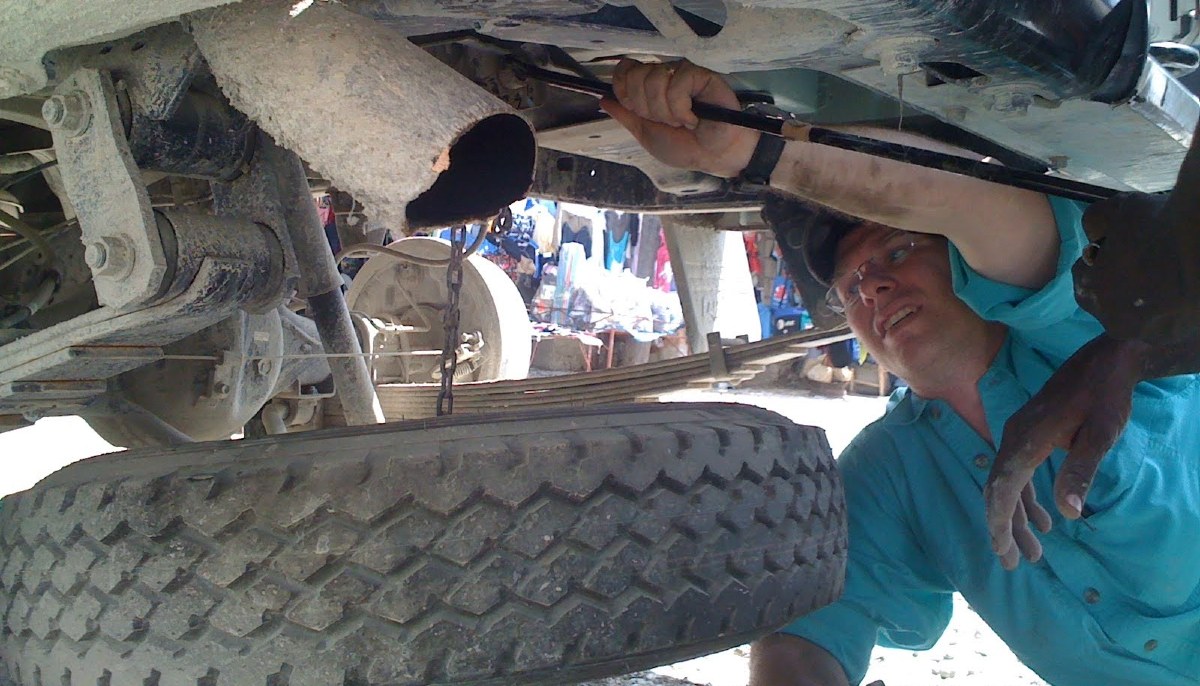
Chris Sheach is an assistant professor of disaster management at Paul Smith’s College in northern New York State. He entered the MADEM program with an extensive international, hands-on disaster response background and used his studies at RRU to look at disasters from a wider lens.
“[the MADEM program] took the things I had been interested in — global development, change — but it really triggered who I was, which was somebody who couldn’t sit around and wait for things to change,” says Sheach.
He says that he’d become burned out from years of frontline work, he says teaching, fuelled by his RRU studies, gives him hope: “I see the hope and the optimism in my students, and I actually believe in their future. I’m excited about what they can achieve that I wasn’t able to get to.”
Looking at wildfires and other natural disasters this year, however, Sheach says, “As emergencies and disasters cost us more and more money, climate change is making them more significant, whether it’s heat or cold, drought or rain.
“Leadership is an issue,” he adds. “Climate change is exponentially growing our disasters and we’re not keeping up… The world is shifting, climate is shifting. We have an opportunity now to be more prepared for what’s to come.”
John MacDonald — ( Grad 2018)
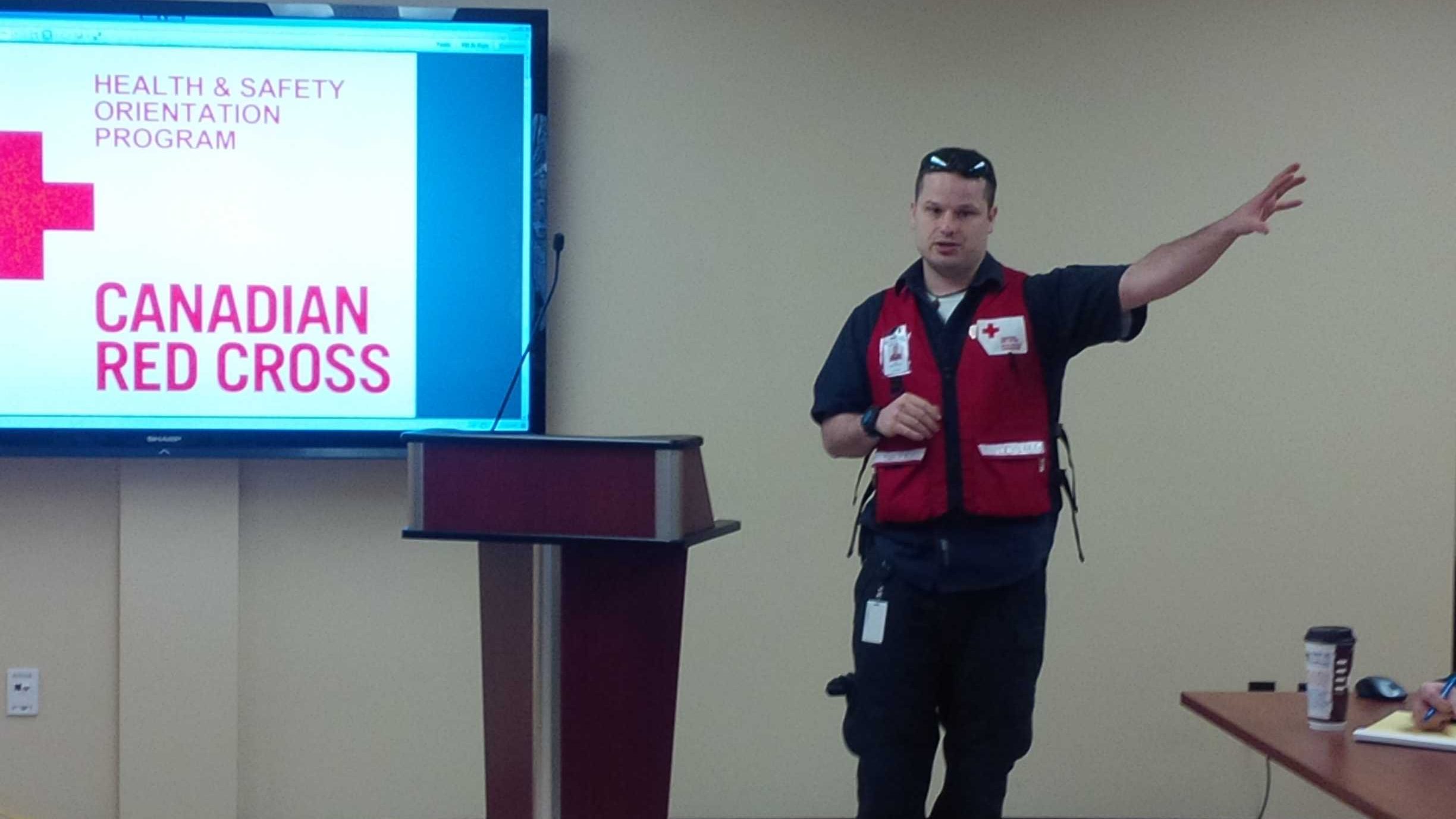
MacDonald lives near St. John’s, Newfoundland Labrador and works in the Canadian Coast Guard’s office of incident management. The Ottawa native’s job is more behind-the-scenes than frontline now, he says, explaining, “When an incident happens, I’m not a decision maker. I advise the decision makers — kind of live-train them — as they go through a process. I train them in how an emergency coordination centre works, train them in the incident command system, I train them in multi-agency coordination.”
He credits RRU and the MADEM program: “It was the catalyst for me to change my career, my profession. I switched from being a frontline first responder, in the fire department, to being more of a capacity building [professional]. I see my main job being preparing the front lines for their work.”
That includes Coast Guard staff who are involved in BC wildfires as background support.
MacDonald notes that there are lessons in every disaster and response if people are willing to learn them. For example, he says, “Had we focused on the 2003 SARS pandemic a little better, we would have done much, much, much better on this 2020 pandemic. We’re a reactive society — it’s sort of ingrained in our condition.”
Vishva Ragunathan — (Grad 2021)
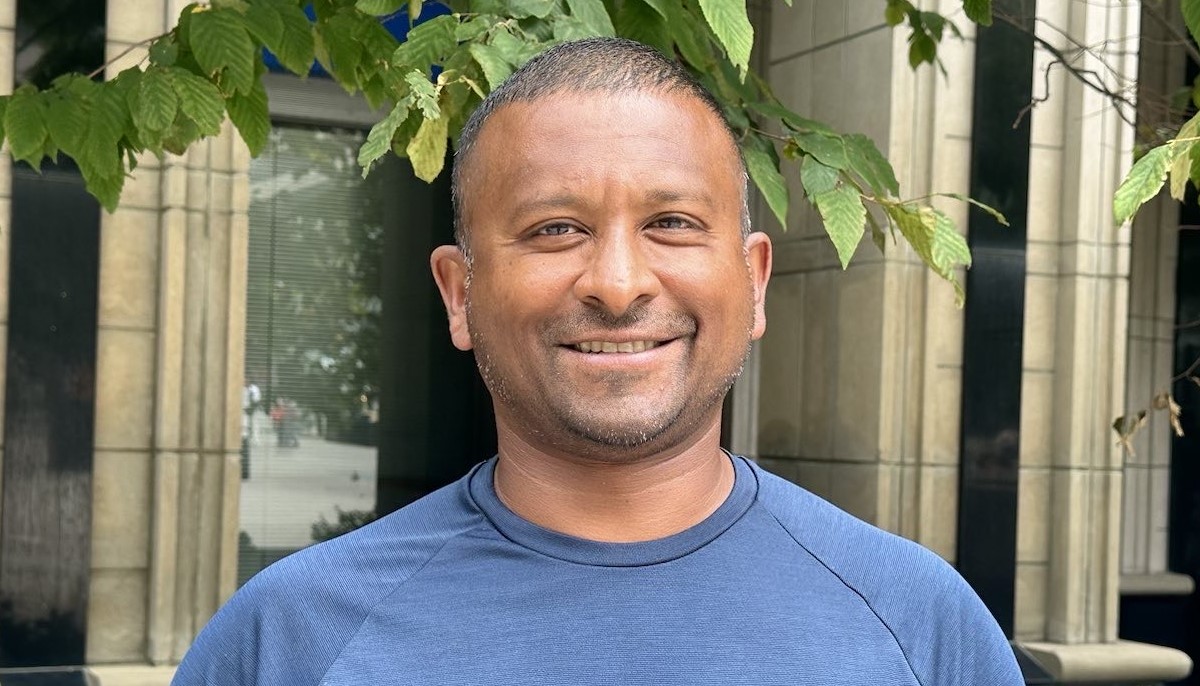
Ragunathan lives in Toronto and works for the Canadian Red Cross as an Emergency Response Unit coordinator in charge of deploying mobile field hospital equipment across the country in response to disasters that affect the health and well-being of Canadians. He was part of the response team brought in during the late-spring wildfires in Halifax and has previous experience responding to various COVID-19 operations across the country. His interest in disaster and emergency management developed after responding to the 2004 tsunami in Sri Lanka with a local NGO.
“Prior to taking the [MADEM] program,” he says, “I was very much response-oriented, reactive. I was constantly responding to disasters and not understanding why a hazard turns into a disaster for some people.
“We all think a disaster impacts everyone similarly, which is not true,” he adds. “So, when I look at the wildfires happening in BC, I’m always asking myself questions: ‘Why is this wildfire impacting this community more than another community?’”
Ragunathan says the answer is complex and involves existing risks and vulnerabilities in communities as well as what resources they have readily available. On top of that, the impact of climate change is increasing the frequency and severity of natural hazards.
“When I respond now, when I go into the field, I always keep this in the back of my mind: How do we make these communities more resilient so these disasters don’t happen again in the future?”
Yannick Lapierre — (Grad 2013)
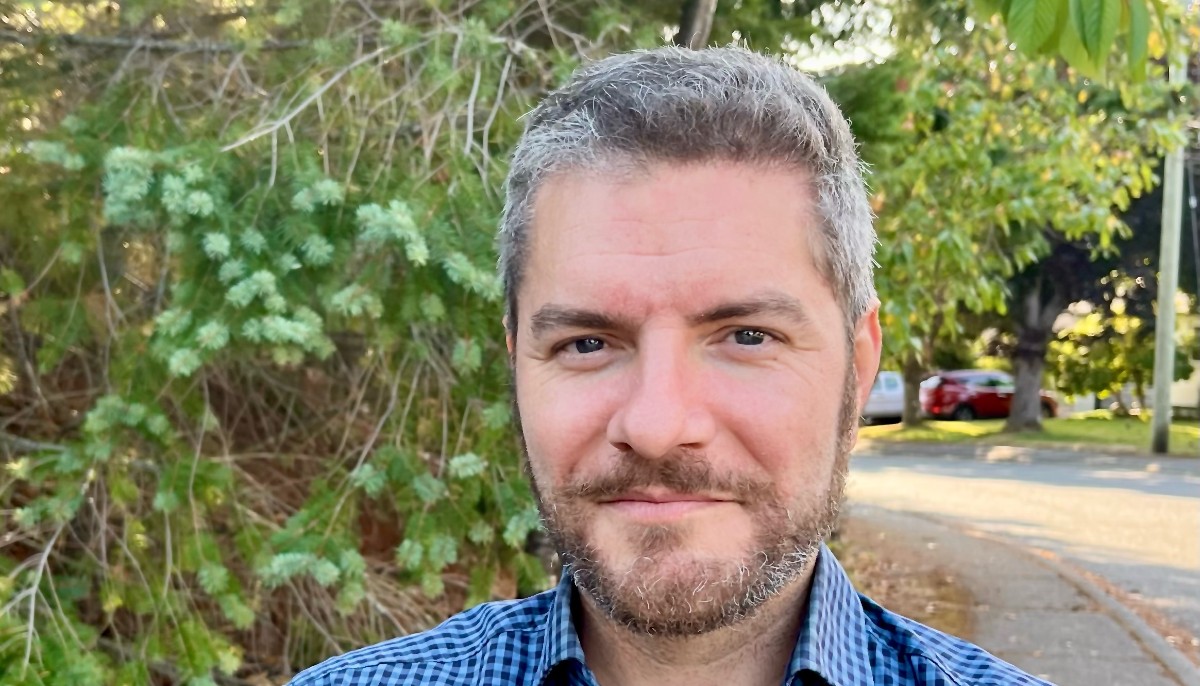
Lapierre is a former military medic who grew up in Montreal and Calgary, and now works as a program advisor for Indigenous Services Canada, providing support and assistance to BC First Nations communities affected by natural hazards. He’s quite familiar with the challenges facing remote and rural communities, which work with the agency to obtain equipment — radios, sirens, sprinkler systems — and to develop risk assessments and evacuation plans.
Lapierre say disasters usually have multiple impacts and, referring to Lytton, BC, which was destroyed by wildfire in 2021 and again hit this year, notes, “Unfortunately, it’s difficult for communities to recover from one event before the next one happens. We’re seeing that a lot.”
He adds: “We’re also seeing the impact on community members evacuating every year or a few times over the last five years, creating lots of anxiety.”
Despite the challenges, he’s passionate about his work and says his time at RRU made him an avid reader of emergency management literature from around the world in search of best policies and practices that could be applied in BC.
As well, the program provided another benefit: That’s where he met his wife, Catriona Convey, who works in emergency management.
Julian Hockley — (Grad 2020)
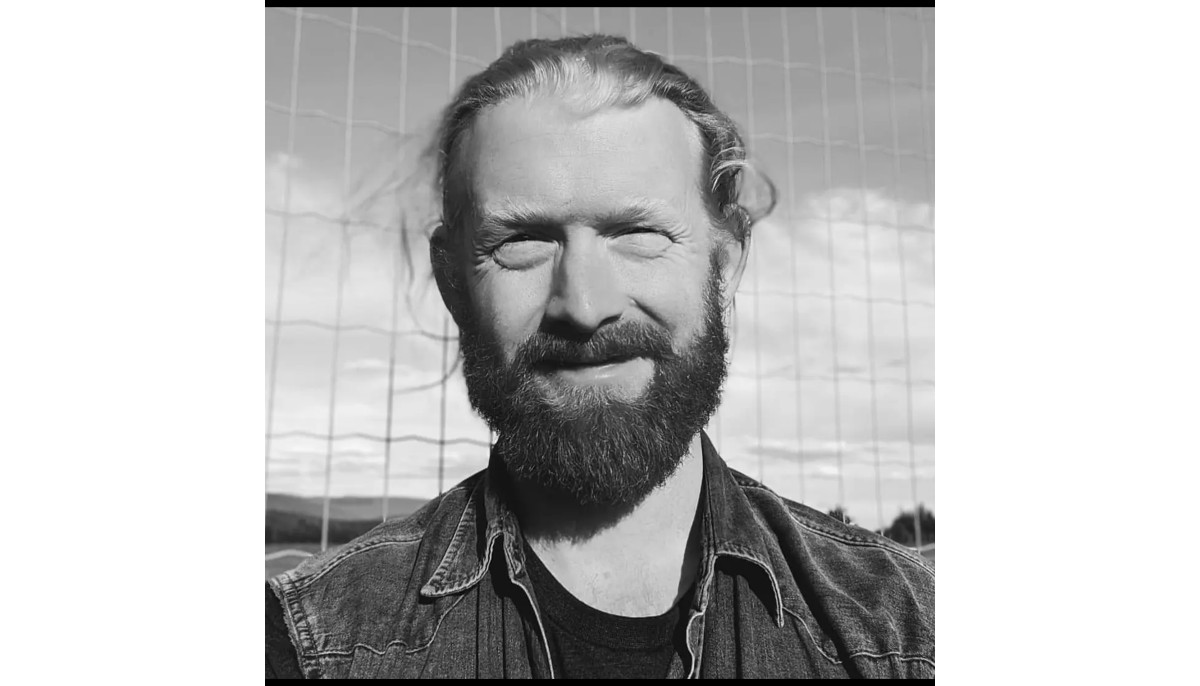
Hockley has seen it all this year and for the past 13 years. A Squamish, BC resident, he works on one of BC Wildfire’s five incident management teams and has spent his share of time on the frontlines, fighting blazes across the province.
“Over the years, we’ve seen the fire seasons get worse and worse and worse, and the reasons for staying [in wildfire fighting] have grown and grown,” he says, speaking from a fire camp near Boston Bar.
His current role is safety officer, overseeing fire line operations and firefighter health and wellness, including, critically, mental health. And this year has been particularly challenging.
“Obviously, we’ve been overwhelmed, the whole country’s been overwhelmed,” Hockley says, noting that despite mass evacuations, “We’ve had a lot of success."
“It’s exhausting,” he says. “My first deployment was the May long weekend and it’s been two weeks out, four, five, six days back, two weeks out again ever since… The hours add up.”
And in this historic fire season, Hockley says his RRU connections are valuable.
“In a year like this, when everyone’s drawn into some sort of response effort, it feels like you’re even part of some larger community — knowing them, connecting with them, seeing what everyone is doing.”
Learn more or enroll in the Master of Arts in Disaster and Emergency Management program.